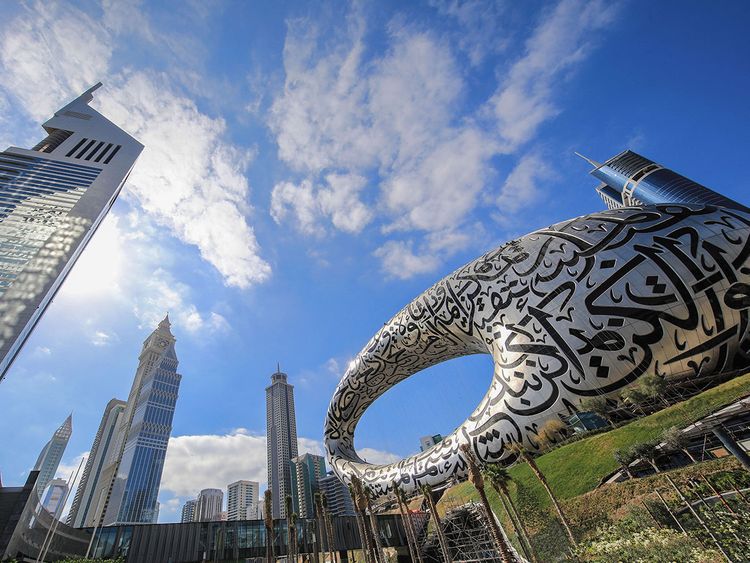Middle Eastern citizens and residents want the global tourism sector to learn the lessons of the pandemic, and to change for the better, a brand-new global survey has found.
Middle Eastern respondents were the most optimistic on the prospect of taking either a holiday or business trip abroad in the next six months, reflecting strong performance of regional economies. The survey found 58 per cent of Middle Eastern respondents are now more likely to travel domestically.
The Future of Tourism Survey explored attitudes to travel and the expectations of consumers in 11 countries around the world.
Investing heavily in tourism
They survey found that Middle Easterners, in a region where Saudi Arabia, the UAE, Egypt, Jordan are investing heavily in tourism, and with Qatar preparing to host the World Cup later this year, were most supportive of putting health and sustainability before profit.
Conducted by YouGov and commissioned by the Ministry of Tourism of Saudi Arabia, almost 14,000 people were polled, across China, the United States, the UK, Germany, India, Japan, Saudi Arabia, Mexico, South Korea, Spain and Sweden.
Ahmed Al Khateeb, Minister of Tourism of Saudi Arabia said: “The pandemic has a profound impact on the global tourism sector. It has shown us all – travellers, tourists, businesses and governments, that we can do things differently.
“The Future of Tourism Survey shows that the public want us to learn the lessons of the pandemic and to make changes that put health, sustainability, and the better use of technology, at the heart of future tourism.”
Attitudes change
The Survey found that the travelers’ attitudes have changed following two years of pandemic and lock downs which have constrained travel.
Economic uncertainty and rising prices have damped enthusiasm for travel over the next 6 months. Globally, 42 per cent of people are either likely or very likely to travel internationally for a holiday, compared with 39 per cent who are either unlikely or very unlikely to do so.
The biggest impact, however, has been on business travel. Just 18 per cent of respondents across all markets considered themselves likely or very likely to travel for internationally for business.
UNWTO meeting
The Future of Tourism Survey was released ahead of the 116th meeting of the Executive Council of the United Nations World Tourism Organisation (UNWTO), which will take place in Jeddah, Saudi Arabia next week, hosted by the Saudi Ministry of Tourism.
Strengthening the tourism sector and adapting to future demands for greater sustainability and resilience are high on the agenda.
Prior to the pandemic, Travel and Tourism (including its direct, indirect and induced impacts) accounted for 1 in 4 of all new jobs created across the world, 10.3 per cent of all jobs (333 million), and 10.3 per cent of global GDP ($9.6 trillion).
Brand-new tourism destination
Al Khateeb said: “Saudi Arabia is a brand-new tourism destination. We opened our doors to international tourism just before the pandemic, and because of that we are willing and able to think and act in new and different ways.
“By aligning vision, leadership and resources we have been able to create a new model for tourism which is more resilient and more sustainable by design. We look forward to sharing our insights and to working with our international partners to build a brighter future for tourism.”
Last week the World Economic Forum released its Travel and Tourism Development Index. Saudi Arabia moved up 10 places to 33rd in the world overall. The independent index benchmarks 117 countries on 17 pillars crucial to the development and resiliency of their travel and tourism industries.
Saudi moved from 43rd in 2019 to 33rd in 2021, the second largest rise in rankings, as a result of improvements across almost all indicators. This was the first report to be produced since Saudi opened for international tourism in September 2019. The UNWTO Executive Council will meet in Jeddah, Saudi Arabia from June 7 to 8.
Globally, the survey found that:
*44 per cent of respondents called for greater harmonisation of health protocols and the use of technology to enable seamless travel.
*34 per cent wanted to see greater sustainability at the heart of tourism.
*29 per cent wanted to see health and sustainability prioritized over profits for the travel sector.
*33 per cent called for greater financial protections for travelers – likely in response to the experience of the pandemic.
People from China, India, and South Korea were most in favor of greater harmonisation of safety protocols and use of technology to make travel simpler.


